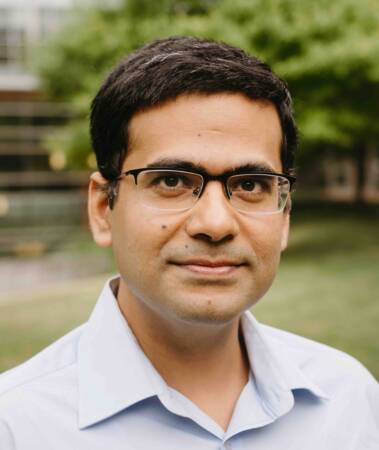RI Seminar
Toward an ImageNet Moment for Synthetic Data
Abstract: Data, especially large-scale labeled data, has been a critical driver of progress in computer vision. However, many important tasks remain starved of high-quality data. Synthetic data from computer graphics is a promising solution to this challenge, but still remains in limited use. This talk will present our work on Infinigen, a procedural synthetic data [...]
Reduced-Gravity Flights and Field Testing for Lunar and Planetary Rovers
Abstract: As humanity returns to the Moon and is developing outposts and related infrastructure, we need to understand how robots and work machines will behave in this harsh environment. It is challenging to find representative testing environments on Earth for Lunar and planetary rovers. To investigate the effects of reduced-gravity on interactions with granular terrains, [...]
Where’s RobotGPT?
Abstract: The last years have seen astonishing progress in the capabilities of generative AI techniques, particularly in the areas of language and visual understanding and generation. Key to the success of these models are the use of image and text data sets of unprecedented scale along with models that are able to digest such large [...]
Robot Learning by Understanding Egocentric Videos
Abstract: True gains of machine learning in AI sub-fields such as computer vision and natural language processing have come about from the use of large-scale diverse datasets for learning. In this talk, I will discuss how we can leverage large-scale diverse data in the form of egocentric videos (first-person videos of humans conducting different tasks) [...]
What Makes Learning to Control Easy or Hard?
Abstract: Designing autonomous systems that are simultaneously high-performing, adaptive, and provably safe remains an open problem. In this talk, we will argue that in order to meet this goal, new theoretical and algorithmic tools are needed that blend the stability, robustness, and safety guarantees of robust control with the flexibility, adaptability, and performance of machine [...]
Soft Wearable Haptic Devices for Ubiquitous Communication
Abstract: Haptic devices allow touch-based information transfer between humans and intelligent systems, enabling communication in a salient but private manner that frees other sensory channels. For such devices to become ubiquitous, their physical and computational aspects must be intuitive and unobtrusive. The amount of information that can be transmitted through touch is limited in large [...]
Robots That Know When They Don’t Know
Abstract: Foundation models from machine learning have enabled rapid advances in perception, planning, and natural language understanding for robots. However, current systems lack any rigorous assurances when required to generalize to novel scenarios. For example, perception systems can fail to identify or localize unfamiliar objects, and large language model (LLM)-based planners can hallucinate outputs that [...]






